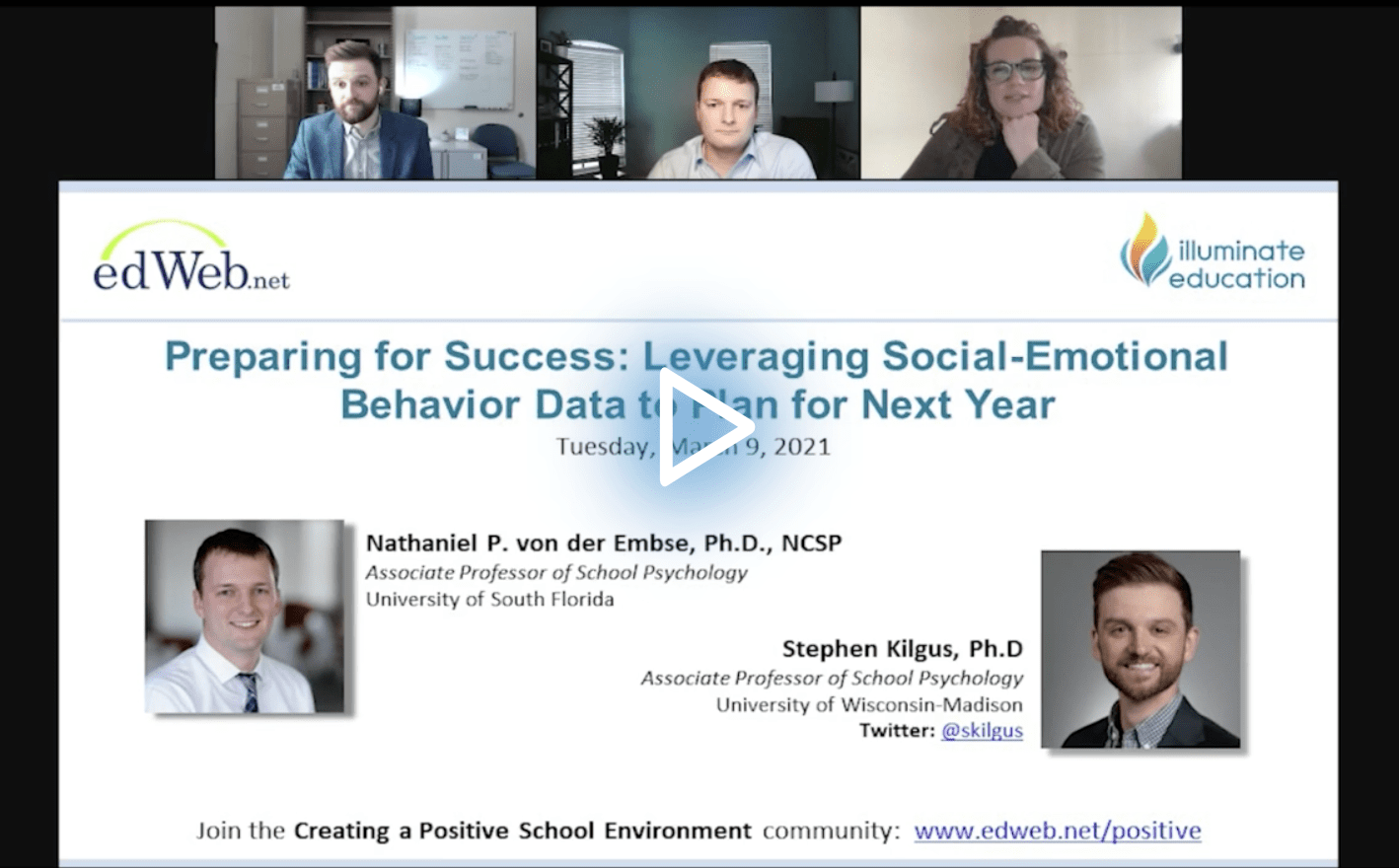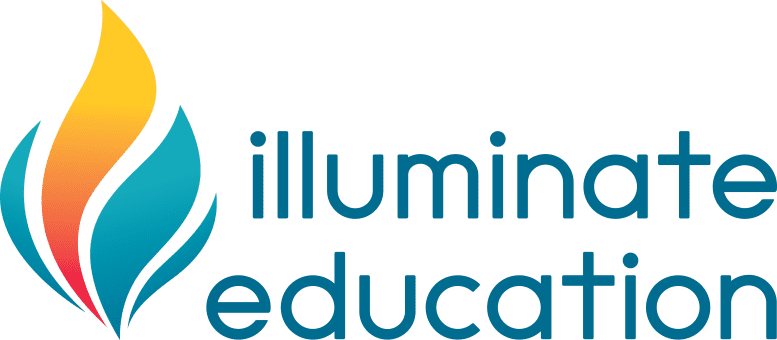Leveraging Social-Emotional Behavior Data to Plan for Next Year
By Eileen Belastock
WATCH THE EDLEADER PANEL RECORDING
About one in five kids will exhibit some type of severe social-emotional behavioral symptoms that would qualify for some level of support. And yet, very early since the pandemic began, there has been over a 20% increase of kids experiencing depression or anxiety after one month of lockdown with a disproportionate impact on students from minoritized populations.
According to Nathaniel von der Embse, Ph.D., NCSP, Associate Professor of School Psychology at the University of South Florida, and Stephen Kilgus, Ph.D., Associate Professor of School Psychology at the University of Wisconsin-Madison, there has been an increase of nearly one-third of kids accessing mental health services within an emergency room setting.
In an edLeader Panel, sponsored by Illuminate Education, both Dr. von der Embse and Dr. Kilgus recognize that it’s been tremendously challenging for untold millions of students and families to meet their mental health needs, and COVID-19 has exacerbated some of those existing risk factors. Students ultimately depend on those services delivered within a school setting, and many schools now face the challenge of serving an increased number of kids in need.
When thinking about mental health, it’s important to note that academic success doesn’t always equate to school success. Such things as academic skills, social-emotional skills, and behavioral skills are necessary to benefit from that high-quality instructional environment. It is critical for school districts to be proactive and use evidence-based approaches towards recognizing the early symptoms and signs of mental health needs.
The most common way to address this systemwide or schoolwide is positive behavioral interventions and supports, or PBIS. Within a PBIS system, any sound Multi-Tiered System of Support should be adequate for about 80% of kids. Tier 2, or more targeted levels of support, should be for about 15%. The most intensive and individualized supports should live at the 5% level.
Evidence-based intervention is dependent on an evidence-based assessment process, and the presenters recommended universal screening using tools such as the Social, Academic, Emotional Behavior Risk Screener (SAEBRS). Universal screeners can be a temperature check for student populations for schools. It can provide schools with an understanding of the prevalence of mental health concerns, measure how students’ behaviors and social well-being have changed throughout COVID-19, and the best course of action in applying for interventions and support across schools.
In terms of data use, both Dr. von der Embse and Dr. Kilgus recommend schools thoroughly plan and develop a base rate, resource map, and intervention guide. Implementation considerations regarding universal screening should include questions such as: “Is the data graphed and sufficient to make decisions?”, “Based on the progress monitoring data, is their progress towards Standards-Based Teaching and Learning?”, and “Based on progress monitoring is the intervention(s) implementation with fidelity?”
Finally, any program that leverages social-emotional behavior data must be looked at through an equity lens. It is essential to train raters, educators, or students in the content and purpose of screening, including implicit bias, as disaggregated data can be a powerful tool to identify inequities in a system.
This edWeb broadcast was sponsored by Illuminate Education
WATCH THE EDLEADER PANEL RECORDING
About the Presenters
Nathaniel P. von der Embse, Ph.D. is an associate professor of school psychology at the University of South Florida. Dr. von der Embse serves as an associate editor for the Journal of School Psychology, and his research interests include universal screening for behavioral and mental health, teacher stress and student test anxiety, and training educators in population-based mental health services. He received the 2018 Lightner Witmer Award for early career scholarship from Division 16 of the American Psychological Association. He is one of the authors of the Social, Academic, and Emotional Behavior Risk Screener (SAEBRS) assessment suite and is an author and behavior team member with FastBridge.
Dr. Stephen Kilgus is Associate Professor in the School Psychology Program at the University of Wisconsin-Madison where his research primarily relates to social-emotional and behavioral assessment. His work has resulted in the development of evidence-based assessment procedures, as well as the validation of tools for universal screening, problem analysis, and progress monitoring. Dr. Kilgus has authored and contributed to the development of a number of assessments, including the SAEBRS screener and Direct Behavior Ratings (DBRs). He currently serves as a principal investigator on a grant from the Institute of Education Sciences (IES) regarding the validation of the Intervention Selection Profile (ISP), a suite of tools to inform the selection and modification of Tier 2 targeted interventions. Dr. Kilgus is also researching the development and evaluation of Tier 2 targeted interventions.
Join the Community
Creating a Positive School Climate is a free professional learning community on edWeb.net that provides all education stake-holders with a place to collaborate on improving the learning environments of our schools to make them safe places for all students to reach their full potential.
Illuminate Education partners with K-12 educators to equip them with data to serve the whole child and reach new levels of student performance. Our solution brings together holistic data and collaborative tools and puts them in the hands of educators. Illuminate supports over 17 million students and 5200 districts/schools.
Eileen Belastock, CETL is the Director of Technology and Information for Nauset Public Schools, MA, and also works with edWeb.net to write articles on their professional learning edWebinars. You can follow Eileen on Twitter @EileenBelastock.





Comments are closed.